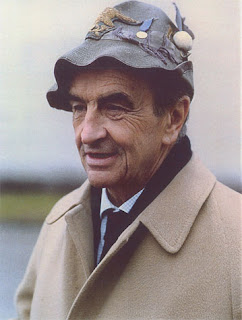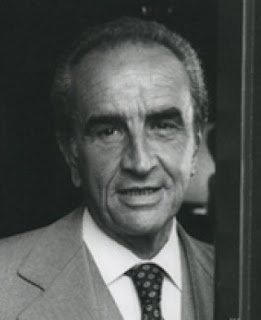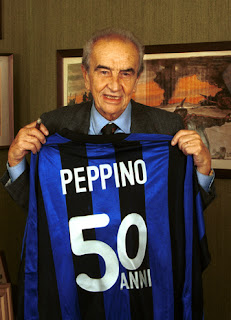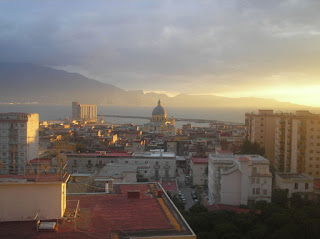Vice-president who became Inter Milan icon
 |
| Giuseppe Prisco, a legend at Inter, proudly wears the feathered hat from his Alpini uniform |
Universally known as Peppino, he managed to combine a career in legal practice with a passion for Inter that he would share so publicly he became a symbol of the club whose name was chanted on the terraces.
Born in Milan into a family with its roots in Torre Annunziata, near Naples, he was said to have fallen in love with the nerazzurri at seven years old in 1929, when he witnessed his first derby against AC Milan at Inter’s old stadium, the Campo Virgilio Fossati, between Via Goldoni and Piazza Novelli to the east of the city centre.
His career as a lawyer did not begin until after he had served with the Alpini - the mountain troops of the Italian Army - on the Russian front in the Second World War. He was only 18 when he joined up but reached the rank of lieutenant in the “L’Aquila” battalion of the 9th Alpine Regiment, and as one of only three officers from 53 to return alive from the Russian front was awarded a Silver Medal for Military Valour by the Italian government.
On returning to civilian life, he graduated in law at the University of Milan and became a registered practising lawyer in 1946, opening his own office in the city, the start of a business that would bring him success and kudos for decades.
 |
| Prisco was for many years the president of the Milanese Bar Association |
Prisco joined his beloved Inter in 1949 as club secretary and thereafter served as a legal advisor to the board of directors before being elected vice-president in 1963, a position he held until his death in 2001, two days after his 80th birthday.
During his time as a director of the club, Inter won six Serie A titles, two European Cups, two Intercontinental Cups, three UEFA Cups, two Coppa Italia titles and one Italian Super Cup.
Fans took him to their hearts after he used his legal expertise to force UEFA to overturn a defeat against Borussia Moenchengladbach in the UEFA Cup in 1971 after the Inter forward Roberto Boninsegna had to be taken off after being struck by a can thrown from the crowd. Inter won the rematch.
He also endeared himself to the nerazzurri faithful with the sharp one-liners he would frequently deliver during television interviews when he was given the opportunity to talk about the club’s great rivals.
 |
| Prisco was presented with a special Inter shirt to mark his 50 years with the club |
On another occasion, he declared: “I’m against every form of racism but I’d never allow my daughter to marry a Milan player.”
At the end of the 1990s, he became a regular guest on TV sports shows such as Controcampo, in which he would often have humourous spats with presenters Diego Abatantuono and Giampiero Mughini.
Married to Maria Irene, he had two children: Luigi Maria, who followed him into the legal profession, and Anna Maria. After his death from a heart attack, he was buried at Arcisate, a town in the province of Varese, about 70km (43 miles) north of Milan.
| One of the neoclassical arches that form the entrances to Napoleon's Arena Civica in Milan |
Inter have shared the Stadio Giuseppe Meazza in San Siro with rivals AC Milan since 1947, but before that played at a number of stadiums around the city, including the Campo di Ripa Ticinese in the Ticinese district souith of the centre, the Campo Virgilio Fossati and the Arena Civica, the grandiose neoclassical stadium commissioned by Napoleon Bonaparte after he had proclaimed himself King of Italy in 1905. Inter played their home games at the Arena, a kind of mini-Colosseum in the Parco Sempione, behind the Sforza Castle, from 1930 until 1958.
Travel tip:
 |
| A view over the rooftops at Torre Annunziata, looking towards the waters of Bay of Naples |
More reading:
Massimo Moratti, the business tycoon who presided over Inter's golden age
How Giuseppe Meazza became Italian football's first superstar
Why mystery still surrounds the death of 'God's banker' Roberto Calvi
Also on this day:
1813: The birth of forgotten composer Errico Petrella
1907: The birth of postwar movie star Amedeo Nazzari
1936: The death of playwright Luigi Pirandello
Home


